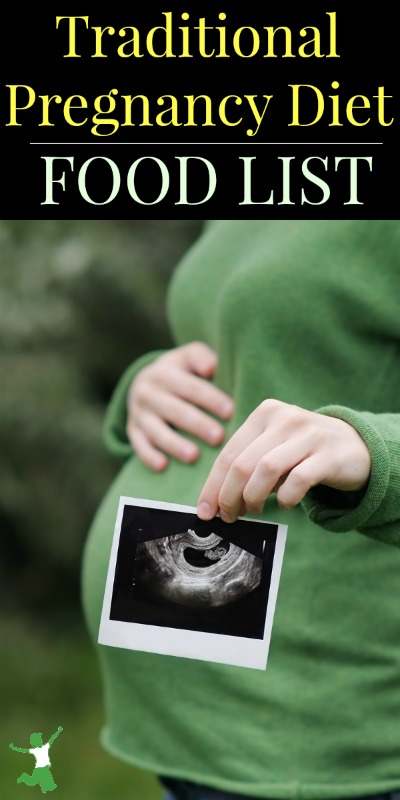Table of Contents[Hide][Show]
The best pregnancy diet for mothers based on the strong anthropological evidence of 14 healthy ancestral societies prior to their industrialization. This same diet is ideal for preconception (fathers too!) and lactation as well.
What diet should a pregnant and nursing mother follow to maximize the odds of a healthy, robust baby? Since modern dietary dogma is failing parents these days with babies increasingly experiencing problems unheard of only a few generations ago, it seems wise to look to history for the best and most objective answers.
The dietary guidelines outlined below for pregnant and lactating mothers give the best odds for a healthy, robust child as produced generation after generation by traditional societies following their native diets.
This heavily documented evidence is drawn from the book Nutrition and Physical Degeneration, which details the dietary habits of 14 vibrantly healthy, chronic disease-free societies across the globe prior to their industrialization and introduction to modern food.
Birth defects and learning disabilities were virtually nonexistent in these populations.
What is the Best Pregnancy Diet?
Note that the pregnancy diet below is based on the dietary habits of healthy traditional people groups. It was followed for at least 6 months prior to conception and then continuing through gestation and lactation.
If other children were planned, they were spaced about 3 years apart to allow the mother to adequately replenish her nutritional stores. This ensured that subsequent babies were as healthy as the first. The careful spacing of children as practiced in ancestral societies also prevented exhaustion and/or health problems in the mother.
It is important to note that the father ALSO followed the dietary regimen during the preconception period as noted by the Weston A. Price Foundation, whose dietary principles mirror those of healthy ancestral populations. (1)
- High vitamin cod liver oil (1 tsp per day).
- 1 quart (or 32 ounces) whole milk daily, preferably raw and from pasture-fed cows. (there is anecdotal evidence that the highly absorbable calcium from milk may reduce childbirth pain)
- 4 tablespoons butter daily, preferably from pasture-fed cows.
- 2 or more eggs daily, preferably from pastured chickens.
- Additional egg yolks added to smoothies, salad dressings, scrambled eggs, etc.
- 3-4 ounces fresh liver, once or twice per week. Alternatively, desiccated liver powder supplement may be used. (2)
- Fresh seafood, 2-4 times per week, particularly wild salmon, shellfish, and fish eggs.
- Fresh beef or lamb daily, always consumed with the fat (preferably grass-fed).
- Oily fish or lard daily if possible for vitamin D.
- 2 tablespoons coconut oil daily, used in cooking or smoothies, etc.
- Lacto-fermented beverages and condiments.
- Bone broths used in soups, stews, and sauces.
- Soaked whole grains.
- Fresh vegetables and fruits, preferably organic.

Foods and Substances to Avoid
- Junk food
- Commercially fried foods
- Refined white sugar and high fructose corn syrup
- Vegetable oils
- GMO foods
- Protein powder
- Refined flour
- Soft drinks
- Artificial sweeteners
- Caffeine
- Alcohol
- Cigarettes
- Drugs (including over-the-counter and prescription drugs)
Contraindications
Cod liver oil contains substantial levels of omega-3 EPA. In excess, it can cause numerous health problems, such as hemorrhaging during the birth process. It MUST be balanced by arachidonic acid (ARA), an omega-6 fatty acid found in liver, egg yolks, and meat fats. Do not add cod liver oil to a diet that is deficient in these important animal foods. It is important to follow the pregnancy and lactation diet above in its entirety, not just selected parts of it.
References
(1) Diet for Pregnant and Nursing Mothers
(2) Vitamin A Saga
More Information








My doctor just told me to stop taking cod liver oil while pregnant because “there is too much vitamin A”. I’m a bit dumbfounded. I’ve taken cod liver oil for almost a decade now. Does anyone have an explanation for why she would tell me that???
It is the synthetic A in the research that is a bad idea, which is paradoxically in all the prenatals.
Most cod liver oil brands DO CONTAIN synthetic A, so your doctor is right on about that … however, the Dropi is natural vitamin A because it is unprocessed.
Hello Sarah:
Thank you for all you do, it brought so much blessing!
I was reading through your blog and noticed that there might me a typo as it is stated for the high-vitamin fermented cod liver oil, pregnant and nursing women should take 1 tsp per day vs 2 tsp (WAPF website). Is that correct?
Perhaps, you can also share your thoughts about taking blue ice royal butter oil with fermented cod liver oil blend. My concern is I want to avoid the risk of an balance during pregnancy but I wasn’t sure if the blend has the right ratio for Omega 3’s and Omega 6’s. if so, It looks like to me that I have to take 20 capsules per day along with 18-24 capsules of radiant life desiccated liver powder. Looking at the number makes me feel overwhelmed ^.^
ooppss…I meant to say I want to avoid an imbalance**
Hi Adc, I no longer recommend fermented cod liver oil due to where the cod is sourced (I stopped recommending it several years ago after Fukushima). I use and recommend raw virgin cod liver oil (sourced from Iceland) and only 1 tsp per day. 1 tsp is only 6 capsules from my calculations. Just a few liver capsules per day would … over the span of a week … equal a serving of fresh liver.
My daughter-in-law is considering the pregnancy diet. However, would you be getting too much vitamin A by taking cod liver oil every day with the addition of desiccated beef liver capsules, even though the capsules would only be taken once or twice a week? Both the cod liver oil and the beef liver capsules are high in vitamin A. Thank you.
Thank you for this post. I’m 19 weeks pregnant with my fourth baby. This is my first pregnancy eating a traditional diet though. My last baby was seven years ago and I was eating a SAD diet, was overweight and had no energy. I’m looking forward to seeing how the benefits of eating this way in pregnancy will benefit this little one. I’ve already seen great benefits for my other kids. Keep up the great work Sarah!!
Milk is recommended and I so want to drink it, but it really makes me break out about my jawline. Should I just deal with the hormonal acne and keep drinking it for my pregnancy…? Or, if it’s causing me issues, could it be a problem for the pregnancy?
If the milk is aggravating your pregnancy acne, then I would suggest to try fermented dairy in the form of yogurt or kefir instead.